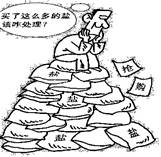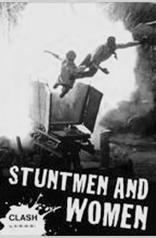题目内容
阅读填空 阅读下面短文,然后根据短文内容补充全文后表格中所缺失的信息。答案直接填在表中题号后的横线上。
Different countries have different manners. Before coming into a house in some Asian countries, it is good manners to take off your shoes. In European countries, even though shoes sometimes become very muddy(多泥的),this is not the case. A guest in a Chinese house never finishes a drink. In Malay house, too, a guest always leaves a little food .In England, a guest always finishes a drink to show that he has enjoyed it .Here are some examples of the things that a well-mannered person does not do.
He never laughs at people when they are in trouble. Instead he tries to help them .He is always kind both to people and animals. When people are waiting for a bus, he takes his turn. He does not push to the front of the queue. On the bus, he gives his seat to an old person or a lady who is standing next to him . If he accidentally knows into someone, or gets in their way ,he says "I'm sorry". He says "Please" "Excuse me" when he makes a request and "Thank you" when he receives something. He stands up when he speaks to a lady or an old person, and he does not sit down until the other people are seated.
Different countries have different manners. Before coming into a house in some Asian countries, it is good manners to take off your shoes. In European countries, even though shoes sometimes become very muddy(多泥的),this is not the case. A guest in a Chinese house never finishes a drink. In Malay house, too, a guest always leaves a little food .In England, a guest always finishes a drink to show that he has enjoyed it .Here are some examples of the things that a well-mannered person does not do.
He never laughs at people when they are in trouble. Instead he tries to help them .He is always kind both to people and animals. When people are waiting for a bus, he takes his turn. He does not push to the front of the queue. On the bus, he gives his seat to an old person or a lady who is standing next to him . If he accidentally knows into someone, or gets in their way ,he says "I'm sorry". He says "Please" "Excuse me" when he makes a request and "Thank you" when he receives something. He stands up when he speaks to a lady or an old person, and he does not sit down until the other people are seated.
| Countries and a well mannered person does | Manners |
| In some Asian countries before coming into a house In小题1:____________, In小题2:__________, In England, A well-mannered person says “Thank you” | It is good to小题3:___________ You needn’t take off your shoes. a guest always leaves a little food a guest always finishes a drink to 小题4:_________. When小题5:_____and he never laughs at people when they are in trouble. |
小题1:take off your shoes
小题2:European countries
小题3:Malay house
小题4:show that he has enjoyed
小题5:people are waiting for a bus, he takes his turn
试题分析:不同的国家有不同的礼仪。在一些亚洲国家,进入一所房子之前要脱鞋是礼貌。在欧洲国家,有时即使鞋子变得非常多泥的,这不是没关系的。客人在中国房子从未完成。在马来房子,也总是让客人剩一点食物在英国,客人总是喝完,表明,他已经喜欢它。下面是一些例子,一个有礼貌的人不会做的事。
小题1:细节理解题。分析原句:Before coming into a house in some Asian countries, it is good manners to take off your shoes.句意:在一些亚洲国家,进入一所房子之前要脱鞋是礼貌。故填:take off your shoes 。
小题2:细节理解题。分析原文:In European countries, even though shoes sometimes become very muddy(多泥的),this is not the case.句意:在欧洲国家,有时即使鞋子变得非常多泥的,这不是没关系的。故填:European countries。
小题3:细节理解题。分析原文:In Malay house, too, a guest always leaves a little food .句意:在马来房子,也总是让客人剩一点食物。故填:Malay house。
小题4:细节理解题:分析原文:In England, a guest always finishes a drink to show that he has enjoyed it .句意:在英国,客人总是喝完,表明,他已经喜欢它。故填:show that he has enjoyed。
小题5:细节理解题。分析原文:He never laughs at people when they are in trouble. When people are waiting for a bus, he takes his turn. 句意:他从不嘲笑当人们陷入困境。当人们等一辆公交车。故填:people are waiting for a bus, he takes his turn。

练习册系列答案
相关题目


